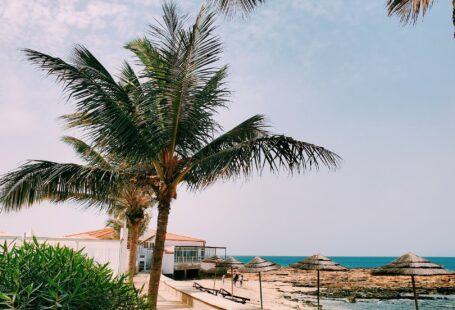Cape Verde, officially known as the Republic of Cabo Verde, is an island nation located off the northwest coast of Africa in the central Atlantic Ocean. It consists of a group of ten volcanic islands and is often referred to as an archipelago. The capital city is Praia, which is situated on the largest island, Santiago.
Key facts about Cape Verde
1. Before booking a flight and hopping on a plane to this island, it’s important you know that The Cape Verde islands are of volcanic origin, with some of the islands still having active volcanoes. The islands are known for their diverse landscapes, including beautiful beaches, rugged mountains, and desert-like areas.
2. Cape Verde has a rich cultural heritage influenced by a mix of African, European (primarily Portuguese), and Creole traditions. The Cape Verdean Creole language is widely spoken and has various dialects across the islands.
3. The economy of Cape Verde is primarily based on services, including tourism, remittances from Cape Verdean communities abroad, and small-scale agriculture. The country has been making efforts to diversify its economy and attract foreign investment.
4. Cape Verde has become a popular tourist destination, known for its stunning beaches, clear waters, and water sports. Visitors are attracted to the relaxed atmosphere, vibrant music and dance culture, and opportunities for outdoor activities.
5. Cape Verde is famous for its music, particularly the genres of morna and coladeira. The internationally acclaimed singer Cesária Évora, often referred to as the “Barefoot Diva,” hails from Cape Verde and helped bring global attention to its music.
6. Cape Verde was a Portuguese colony for centuries and gained its independence on July 5, 1975. The islands were an important stop on transatlantic trade routes and played a role in the slave trade.
7. Cape Verde has a tropical dry climate, with distinct wet and dry seasons. The islands are prone to droughts, and water scarcity has been a significant challenge for the population.
8. Cape Verde is a stable democratic republic with a multi-party political system. It has held regular elections since gaining independence.
9. Cape Verde has made significant progress in education and literacy rates compared to many other African countries. Education is highly valued, and efforts have been made to improve access to quality education.
10. Despite its progress, Cape Verde faces challenges such as limited natural resources, vulnerability to climate change and rising sea levels, and the need for continued economic diversification to reduce dependence on a few sectors.
Worst time to visit Cape Verde
The worst time to book a plane ticket to travel to Cape Verde largely depends on your preferences and what you’re looking for in your travel experience. However, there are a few factors to consider when determining the least favorable times to visit:
1. Rainy Season: Cape Verde has a distinct rainy season, which typically occurs from August to October. During this period, some islands may experience heavy rainfall and potential flooding, which could impact outdoor activities and limit beach time.
2. Heat and Humidity: The hottest and most humid months in Cape Verde are typically from July to September. High temperatures and humidity levels during this time can make outdoor exploration and activities less comfortable.
3. Hurricane Season: Cape Verde is susceptible to hurricanes and tropical storms, particularly during the Atlantic hurricane season, which runs from June 1 to November 30. While direct hits are relatively rare, the possibility of severe weather disruptions exists during this time.
4. Limited Water Availability: Cape Verde is prone to droughts, and water scarcity can be a concern, especially during the dry season. Visitors might experience water shortages or restrictions, impacting their overall travel experience.
Considering these factors, the period from August to October is generally considered less ideal for visiting Cape Verde due to the combination of rainy weather, high temperatures, and the potential for tropical storms. In fact, it’s almost as bad as the worst time to visit London, UK in our opinion.
So when is the best time to go to Cape Verde?
If you’re looking for pleasant weather and a vibrant atmosphere, you might want to consider visiting during the dry season, which typically spans from November to July. The months of November to February are particularly popular among travelers, offering a pleasant climate and fewer chances of encountering rain or storms.
It’s important to note that weather patterns can vary from year to year, so it’s a good idea to check current weather forecasts and travel advisories before planning your trip to Cape Verde.






